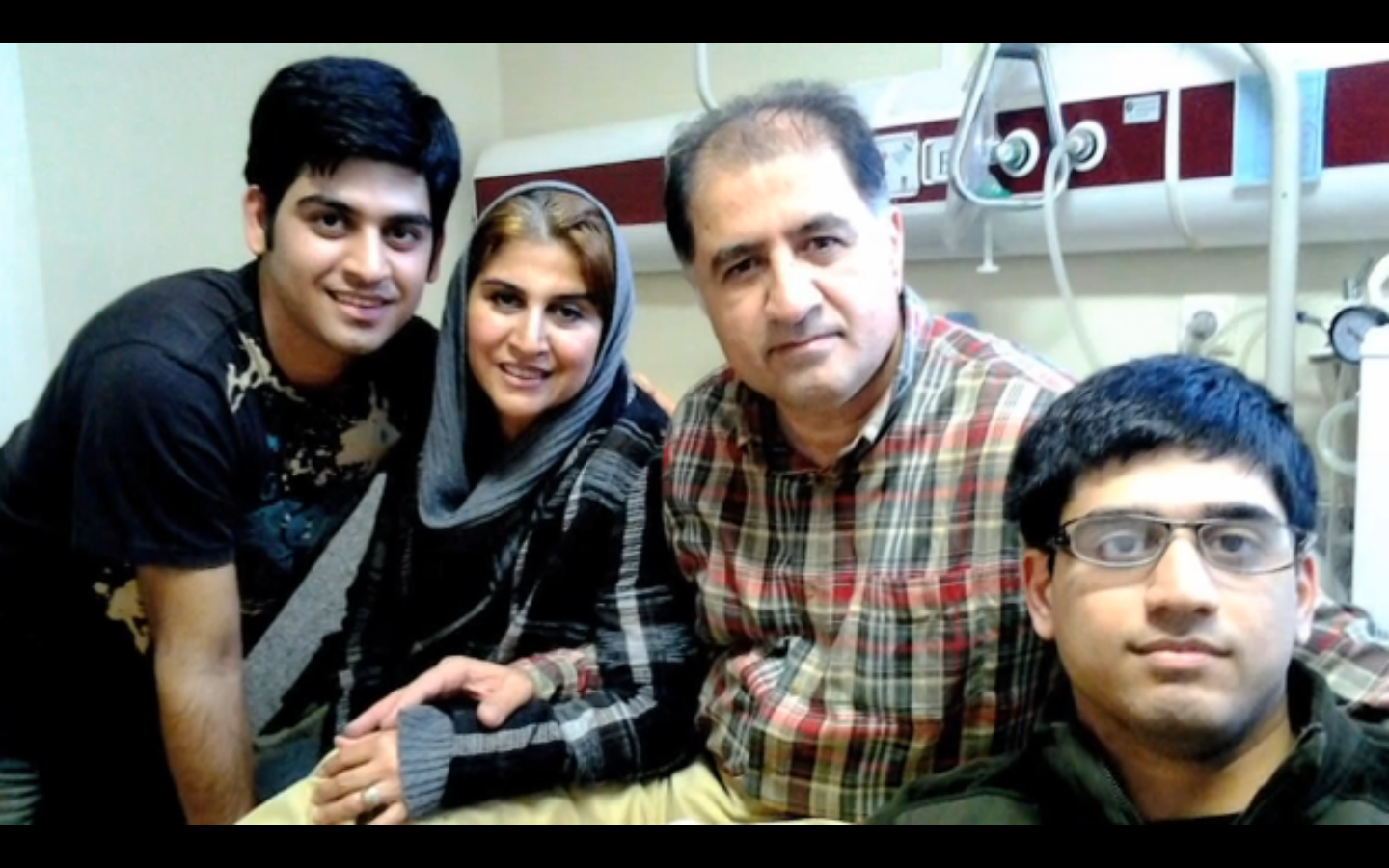Source: www.manoto.news
Translation by Iran Press Watch

In November of 2012, Koroush Ziyari, employed in the production and distribution of clothing, and a Baha’i from Gonbad-e Qabus city in Golestan Province, was arrested by security agents on charges of membership in activities against the regime and communication with hostile governments. This arrest took place just as his leg was severely injured in an accident.
He was sentenced to a five year prison term, merely on the basis of a half page interrogation sheet, with a trial that was called “unjust” by the Human Rights Activists. The sentence was issued although he had not accepted any of the charges against him; he received a five year prison term just on the basis of the one charge of membership in activities against the regime. Since 2012, this prisoner of conscience has been kept in prison in the section designated for prisoners of conscience and political prisoners in Rajai Shahr Prison, hundreds of miles away from his family. One of Ziyari’s two children, who was disabled after a childhood accident, is extremely attached to his father. He is forced to endure the 9 hour drive from his home to the prison, a prison that has no accommodation for individuals with physical disabilities. He makes this 9 hour trip in his mother’s car to visit his father. These issues have put him under tremendous physical and mental pressure.
Despite approval by the regulatory authorities responsible for such issues, such as the Welfare Department, the Ziyari family’s efforts to transfer Koroush Ziyari to a prison close to his home state, demanding their legal right to parole and furlough, have been fruitless.
The report deals with the Ziyari family situation, and the expert opinion of Vahid Moshgani Farahani, attorney-at-law, regarding the case of this prisoner of conscience.
Reporter: Each year there are annual ceremonies, and apparent efforts to help the families of the prisoners. The officials state that the prisoners have committed a crime and are in prison paying for their mistakes; even so, one should not punish their families. Attending to their cultural, social, financial, health and medical needs is the duty of various governmental agencies. In this vein, as of 2013 the laws regarding these matters changed. For prisoners accused of security crimes, the trend is taking a completely opposite direction.
Vahid Moshgani Farahani, attorney-at-law: “What have been defined as prisoner rights in various aspects are categorically not applied to any prisoner who is incarcerated as a result of security charges.”
Reporter: “In November of 2012, Koroush Ziyari, employed in the production and distribution of clothing, and a Baha’i from Gonbad-e Qabus city in Golestan Province, was arrested by security agents on charges of membership in activities against the regime and communication with hostile governments. This arrest took place just as his leg was severely injured in an accident. Since 2012, this prisoner of conscience has been imprisoned at Rajai Shahr Prison, hundreds of miles away from his family.”
Fares Ziyari, son of Koroush Ziari: “They kept giving us hope that after the trial these issues would be resolved, and after the sentence was issued, I worked hard to at least have him be transferred to a prison local to us, because my brother, who is disabled and cannot walk due to an accident when he was six years old, is extremely attached to my father.”
Reporter: “He is forced to endure the 9 hours drive from his home to the prison, a prison that has no accommodations for individuals with physical disabilities. He makes this 9 hour trip in his mother’s car to visit his father. These issues have put him under tremendous physical and mental pressure. The Ziyari family’s efforts to transfer Koroush Ziyari to a prison close to his home state, demanding their legal right to parole and furlough, have been fruitless.”
Vahid Moshgani Farahani: “If an individual was accused of security-related charges under the previous law (before the law was changed), but was prosecuted when the new law was in effect, if the previous law was more favorable towards the accused, the court is obligated to apply the previous law instead of the new law, though with predicted provisions.”
Reporter: “Given that Ziyari was accused under the old law, it remains to be seen if he will be allowed to benefit from his legal rights.”
Reporter, Sanaz Ghazizadeh, The News Room
Leave a Reply